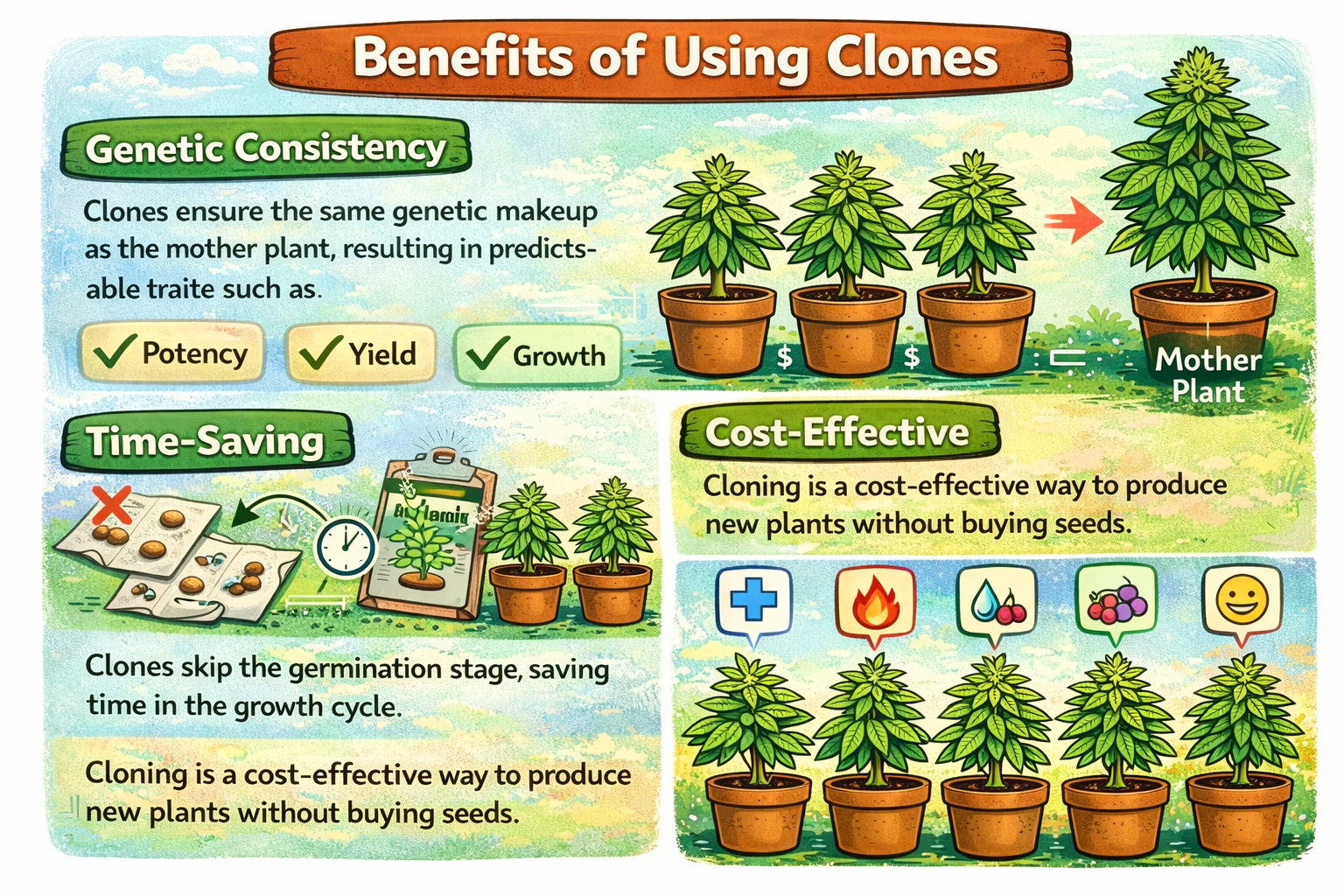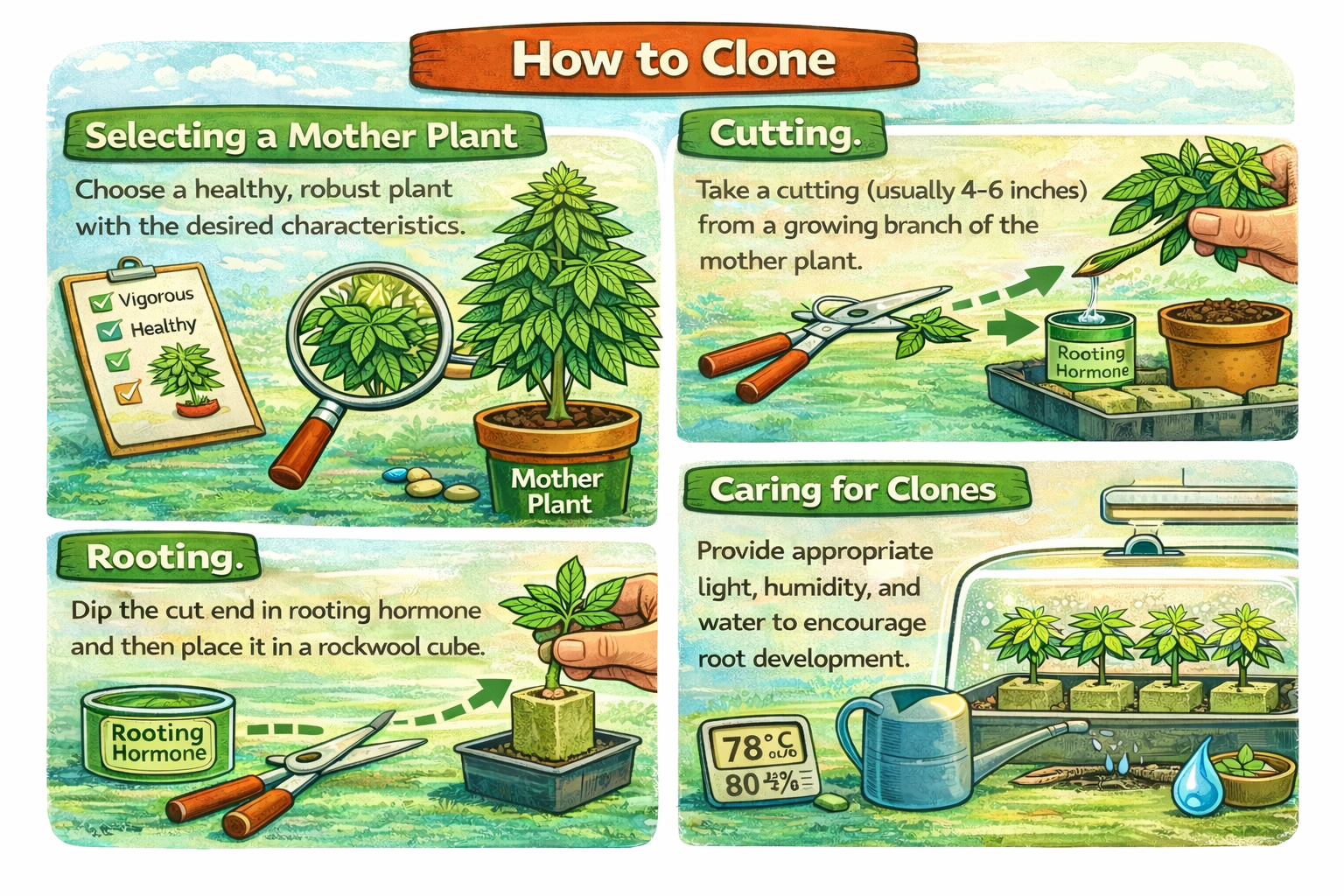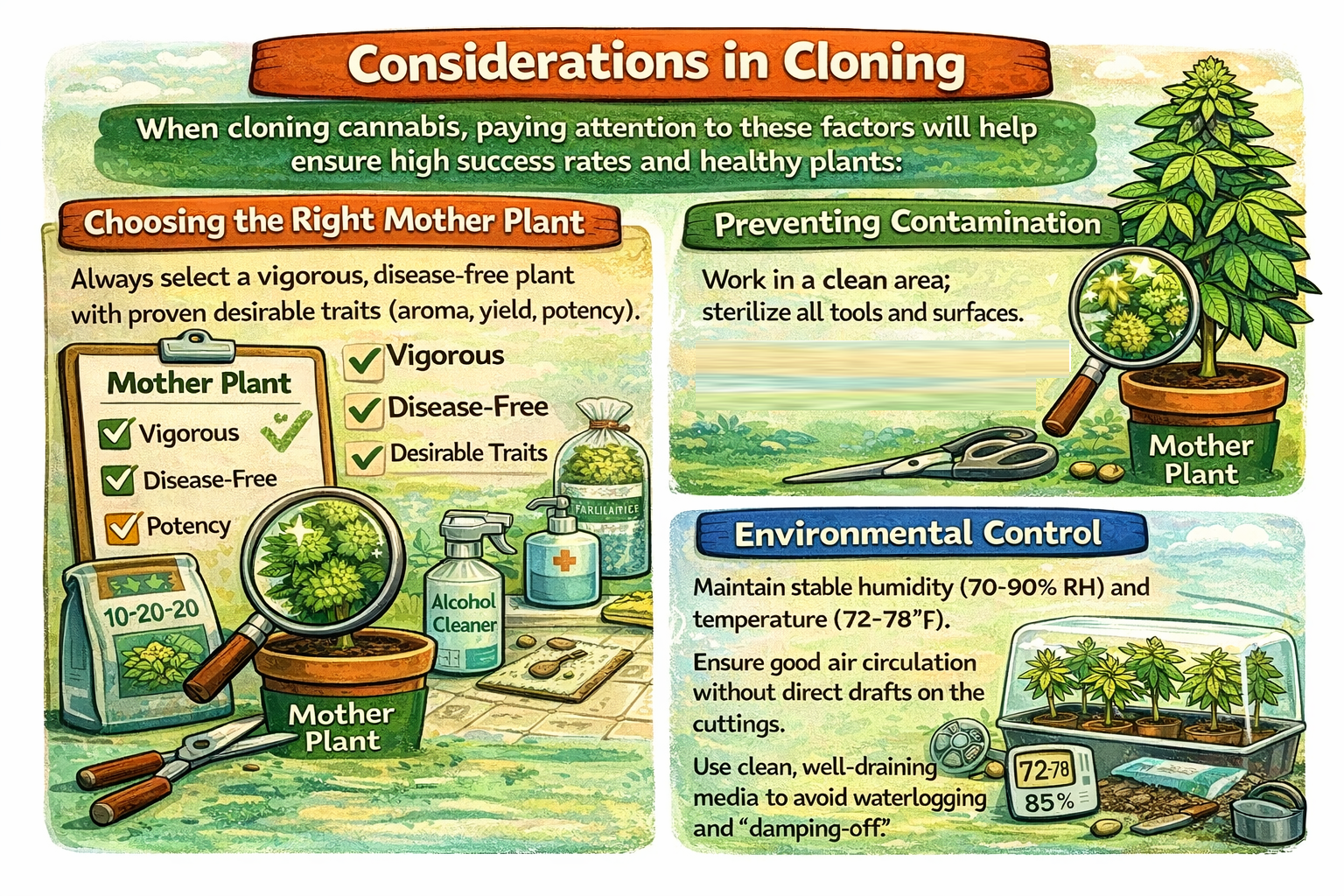Clones
Introduction to Cannabis Clones
Get Quality Clones Locally in Minnesota
Looking for a trusted source of cannabis clones in Minnesota? MinnesotaCannabisClones.com connects local growers with healthy, vigorous starter plants from verified cultivators. Skip the guesswork and start strong with clones you can trust.
- Verified, healthy genetics from reputable growers
- Local pickup or delivery options available
- Consistent traits for reliable grows

Learn the Basics: Cannabis Clones 101
Want to replicate your favorite plant? Our free course on PLNTRK Learn teaches you how to take and care for clones — saving time and ensuring genetic consistency in your grow.
- What cannabis clones are and why they matter
- Step-by-step cloning techniques for success
- Tips for avoiding common cloning mistakes
Definition
Cannabis Clones: These are cuttings taken from a mature cannabis plant (the "mother plant") that can be rooted and grown as a new plant. Clones are genetically identical to the mother plant.
Purpose
Cloning is a method of asexual reproduction allowing growers to replicate a specific cannabis plant with desired traits.
Benefits of Using Clones

- Genetic Consistency: Clones ensure the same genetic makeup as the mother plant, resulting in predictable traits such as potency, yield, and growth characteristics.
- Time-Saving: Clones skip the germination stage, saving time in the growth cycle.
- Cost-Effective: Cloning is a cost-effective way to produce new plants without buying seeds.
- Preservation of Desirable Traits: Clones allow the perpetuation of specific strains, especially those with desirable medicinal or recreational properties.
How to Clone Cannabis
Steps in Cloning

- Selecting a Mother Plant: Choose a healthy, robust plant with the desired characteristics.
- Cutting: Take a cutting (usually 4-6 inches) from a growing branch of the mother plant.
- Rooting: Dip the cut end in rooting hormone and then place it in a growing medium.
- Caring for Clones: Provide appropriate light, humidity, and water to encourage root development.
Considerations in Cloning

- Choosing the Right Mother Plant: The health and traits of the mother plant directly impact the quality of the clones.
- Preventing Contamination: Sterility is crucial in the cloning process to prevent disease and pest infestation.
- Environmental Control: Clones require specific environmental conditions, especially in the initial rooting stage.
Challenges in Cloning
- Rooting Difficulties: Some clones may struggle to develop roots, requiring careful attention and adjustments in humidity and temperature.
- Genetic Drift: Over time, clones of clones can experience subtle genetic changes, potentially altering their characteristics.